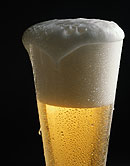
MONDAY, Oct. 15 (HealthDay News) — Weight-loss surgery may increase risk for the use or abuse of alcohol and illicit drugs, a new study suggests.
Patients — 132 women and 23 men — who had undergone one of two commonly performed types of weight-loss surgery filled out questionnaires including items on their eating, smoking and recreational drug use before and after surgery. In general, use of such substances rose at the time of surgery with additional and incremental increases at one, three, six and 24 months after the procedure. Specifically, people who had a type of weight-loss surgery known as gastric bypass were at risk for increased alcohol use after the procedure.
The findings are published online Oct. 15 in the journal Archives of Surgery.
“This study does not mean that everybody who undergoes gastric bypass will become an alcoholic,” said study author Dr. Alexis Conason, a researcher at the New York Obesity Nutrition Research Center in New York City. It’s important to note that the study looked at increased use of alcohol, drugs or cigarettes, not abuse per se.
The American Society for Metabolic and Bariatric Surgery reports that roughly 200,000 bariatric surgeries are performed each year. The new study looked at only gastric bypass and gastric banding. Gastric bypass surgery makes the stomach smaller and allows food to bypass part of the small intestine. By contrast, gastric banding involves placing a silicone band around the upper stomach to limit food intake.
“Be aware of symptoms of substance abuse if you have undergone bariatric surgery, including changes in your relationship with drugs and alcohol,” Conason said. “I don’t think this study should be a deterrent for people seeking surgery. The key thing is to monitor following surgery and inform patients of the risks and signs and symptoms of substance abuse before their surgery.”
Many theories seek to explain why people may be more vulnerable to increases in drinking or drug-taking following weight-loss surgery. Some refer to this phenomenon as addiction swapping — meaning that alcohol or drugs replace the food addiction now that a person can no longer eat as much.
That’s one theory, but there are others.
“We think that it may have something to do with the way the body metabolizes alcohol following surgery,” Conason said. “People become intoxicated more quickly with less alcohol and take longer to get back to their baseline sobriety.”
“After surgery, they may have one drink and start feeling quite intoxicated and perhaps they like it, so they may drink more and more frequently,” she explained.
There also may be changes in the brain following weight-loss surgery. “Gastric bypass may be changing the reward pathways in the brain,” she added.
Dr. Jaime Ponce, a bariatric surgeon at Hamilton Medical Center in Dalton, Ga., and president of the American Society for Metabolic and Bariatric Surgery, called it a “good” study, and said he’s not surprised that alcohol use was more pronounced among people who had gastric bypass surgery.
“When you bypass the stomach, some of the initial alcoholic use that usually happens in the stomach goes to the liver and people actually get the rewarding effects of the alcohol faster,” he said.
All surgeries have risks and benefits, and weigh-loss surgery is no exception, Ponce said. Substance use and abuse should be discussed in counseling prior to surgery and addressed in follow-up. Patients are routinely followed for nutritional shortfalls after surgery, and psychological follow-up is also important, he said.
Another expert agreed.
The new study calls for “better education before and after surgery,” said Dr. John Morton, associate professor of surgery and director of bariatric surgery at Stanford Hospital & Clinics at Stanford University, in California.
Morton said these patients lose weight and become more socially active. Alcohol can be a social lubricant, especially for people who were rusty.
After gastric bypass surgery, you get higher blood alcohol content quicker.
“It’s almost like going from home plate to third without touching second,” Morton said. “You get there faster.”
Morton said education is key. For instance, patients should realize that alcohol also has calories, which can sacrifice weight-loss efforts. He said, however, that the benefits of these surgeries far outweigh the risks for many patients.
“These patients start out with many medical problems, lose weight and their mortality decreases,” he said. “The benefits are quite clear, and the risk of substance use and abuse is manageable.”
Although the study found an association between weight-loss surgery and increased use of drugs or alcohol, it did not prove a cause-and-effect relationship.
More information
Learn more about the risks and benefits of gastric bypass surgery at the U.S. National Institutes of Health.

